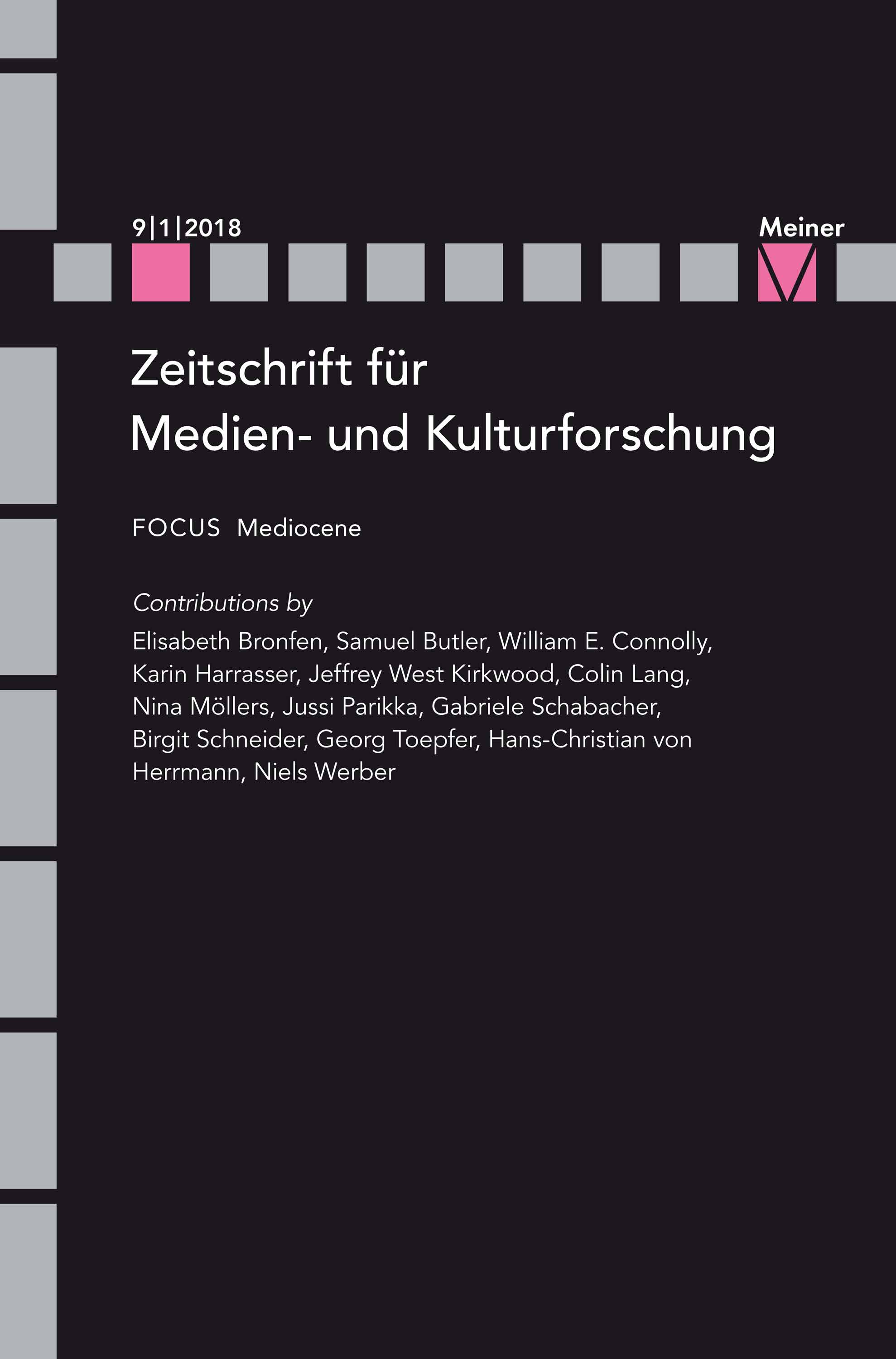- Cover (1 – 4)
- Content (4 – 6)
- Editorial | Lorenz Engell, Bernhard Siegert (6 – 14)
- ARTICLES (14 – 50)
- The Technological Fact of Counterfactuals | Jeffrey West Kirkwood (14 – 34)
- Parallel Editing, Double Time. Mad Men’s Time Machine | Elisabeth Bronfen (34 – 50)
Informationen zum Titel

ZMK Zeitschrift für Medien- und Kulturforschung 9/1/2018: Mediocene
Erscheinungsjahr: 2018Autor: Engell Lorenz,Siegert Bernhard
ISBN: 2366767000091
Beschreibung: The idea of the »Mediocene« advocated in the contributions of this issue serves as a complement and a corrective to the model of the »Anthropocene« that has been so remarkably developed and successful in recent years. The idea of the »Anthropocene« starts from geological stratigraphy and taxonomy and assumes that the impact of specifically human interventions in the global habitat has grown in scale. This then leads to a permanent alteration of the global habitat and, decisively, to a transformation of the geological shape of the planet to such a degree that it serves as justification for proclaiming a new geological epoch (succeeding the »Holocene«). As a complement, the basic underlying assumption of the »Mediocene« concept is that these existential problems cannot be satisfyingly conceived of as long as they are ascribed to human agency, or to some other superactor like fossil fuels (»Oleocene«), plantational economies (»Plantatiocene «) or global capital (»Capitalocene«). In addition, and in a complementary way, the hypothesis of the »Mediocene« also calls for an appropriate understanding of media. Media can be identified as the blind spot in discussions of the »Anthropocene« where they figure at best as the compliant tools and subservient instruments of the supposed control and causation in human hands, extending the human contribution to planetary change. As we know, however, media can be understood precisely not as obedient tools controlled by human subjects or collectives. Rather, media have to be cast as sets of connecting elements that organize operative and cooperative practices, networking and co-evolution among a variety of agents, both human and non-human, including artifacts as well as natural objects and processes. The mediality of the »Mediocene« forms the conceptual link between nature and culture, allowing for the investigation of phenomena like the relation of various forms of human existence to the functions of media processes, the anthropological intertwining of the human and the non-human, and the ontology of material media operating within physical and biological systems.
Zitierung exportieren


